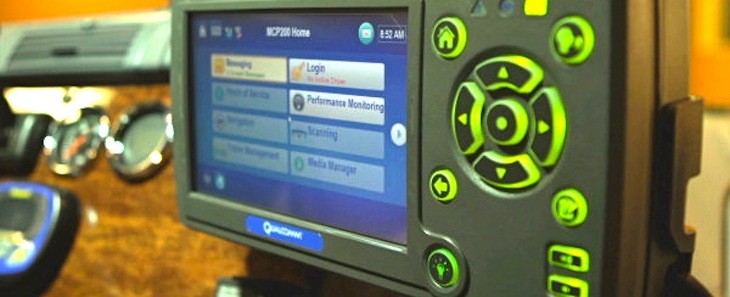Trucking industry halfway into transition to electronic logs, hours-of-service compliance improves
by November 1, 2018 1:33 pm 846 views

The trucking industry is about in the middle of transitioning to electronic logging devices (ELDs), said Joe DeLorenzo, director of the office of compliance for the Federal Motor Carrier Safety Administration (FMCSA).
Many trucks are still operating with automatic on-board recording devices (AOBRDs), and carriers that opted to use one of the latter devices have until December 2019 to switch to an ELD.
DeLorenzo was a participating speaker in a recent webinar hosted by industry publication Transport Topics discussing how the ELD mandate has impacted the industry. The ELD mandate went into effect Dec. 18, 2017, but full enforcement of the mandate didn’t start until April 1.
The rate of compliance with the mandate is more than 99%, DeLorenzo said, adding that the mandate has improved compliance with the hour-of-service rules. The percentage of roadside inspections with at least one hours-of-service violation has fallen from 1.19% in December to 0.61% in August. The amount of successful ELD data transfers from drivers to roadside inspectors has risen to between 90% and 92% in September, and it’s expected to continue to increase, he said. The change in what is considered a successful transfer has led to improved numbers.
Kerri Wirachowksy, director of the roadside inspection program for the Commercial Vehicle Safety Alliance (CVSA), said drivers are still confused as to whether they have an ELD or an AOBRD and stressed the importance of drivers knowing how to use the device. There are more than 300 ELD devices, but a driver only has to operate one, she said. Carriers have trained their drivers, but they need to be refreshed on this training. Inspections go smoother if drivers understand how to use their ELD, and sometimes a driver has an ELD but is operating with AOBRD software. Drivers must have paper logs with them in case the ELD malfunctions.
Carriers should have a process to address ELD malfunctions, such as when the power is removed, said Soona Lee, director of regulatory compliance for ELD provider Eroad. An ELD that has malfunctioned must be fixed within eight days, and a driver has to use paper logs while it’s being repaired. He said the FMCSA can grant an extension if required.
Soona explained the steps needed to ensure compliance with the mandate. First, the ELD needs to be set up with the correct information, such as the U.S. Department of Transportation (DOT) number, vehicle identification number, and the driver’s license number and state. Drivers need to be given the correct level of permissions, including exempt driver status, yard moves, personal conveyance and hours-of-service rules and exemptions. Carriers and drivers are responsible for managing unidentified trips. For example, a carrier can close out an unidentified trip, such as if a technician drove the truck that was receiving work.
A common issue with driver logs is that a driver forgets to set the ELD to show the driver went off duty, Lee said. When a driver returns to duty and doesn’t have any hours left to drive, the driver must edit the log.
When asked about how flexible inspectors are when it comes to the 30-minute rest break, Wirachowksy explained that most officers won’t issue a citation for a difference of under a minute, for example, taking a 29-minute break.
Over the summer, the Commercial Vehicle Safety Alliance hosted its annual International Roadcheck, and the out-of-service rate for the 45,501 Level I comprehensive inspections declined 140 basis points to 21.6%, from the 2017 event, according to the CVSA. During the event in Arkansas, 19 out-of-service violations were for violating the ELD mandate, according to the Arkansas Department of Transportation. A total of 77 drivers and 364 vehicles were placed out of service in the event. Arkansas Highway Police reported more than 1,800 violations as a result of the 675 inspections, and 419 violations related to brakes while 285 were because of lighting.
ELD DATA SHARING
Recently, the American Transportation Research Institute (ATRI), the nonprofit research organization of trade group American Trucking Associations, started an initiative to collect ELD data. The data would be made anonymous and stored.
“The new data generated by ELDs can provide a wealth of insight and research support to our industry,” said Andrew Boyle, co-president of Boyle Transportation and ATRI board member. “But we clearly need a third-party facilitator to manage and monitor how the information is used. ATRI is uniquely suited to serve that role. In the right context, ELDs can provide the real-world data needed to guide future regulations and initiatives.”
Some fleets have already shared ELD data with ATRI, and the organization looks to gather more data from other carriers and use it to address industry issues.
Recently, insurance company Progressive announced it would offer the opportunity for drivers to receive a 3% discount on premiums if they share ELD data with the company, according to freightwaves.com.
